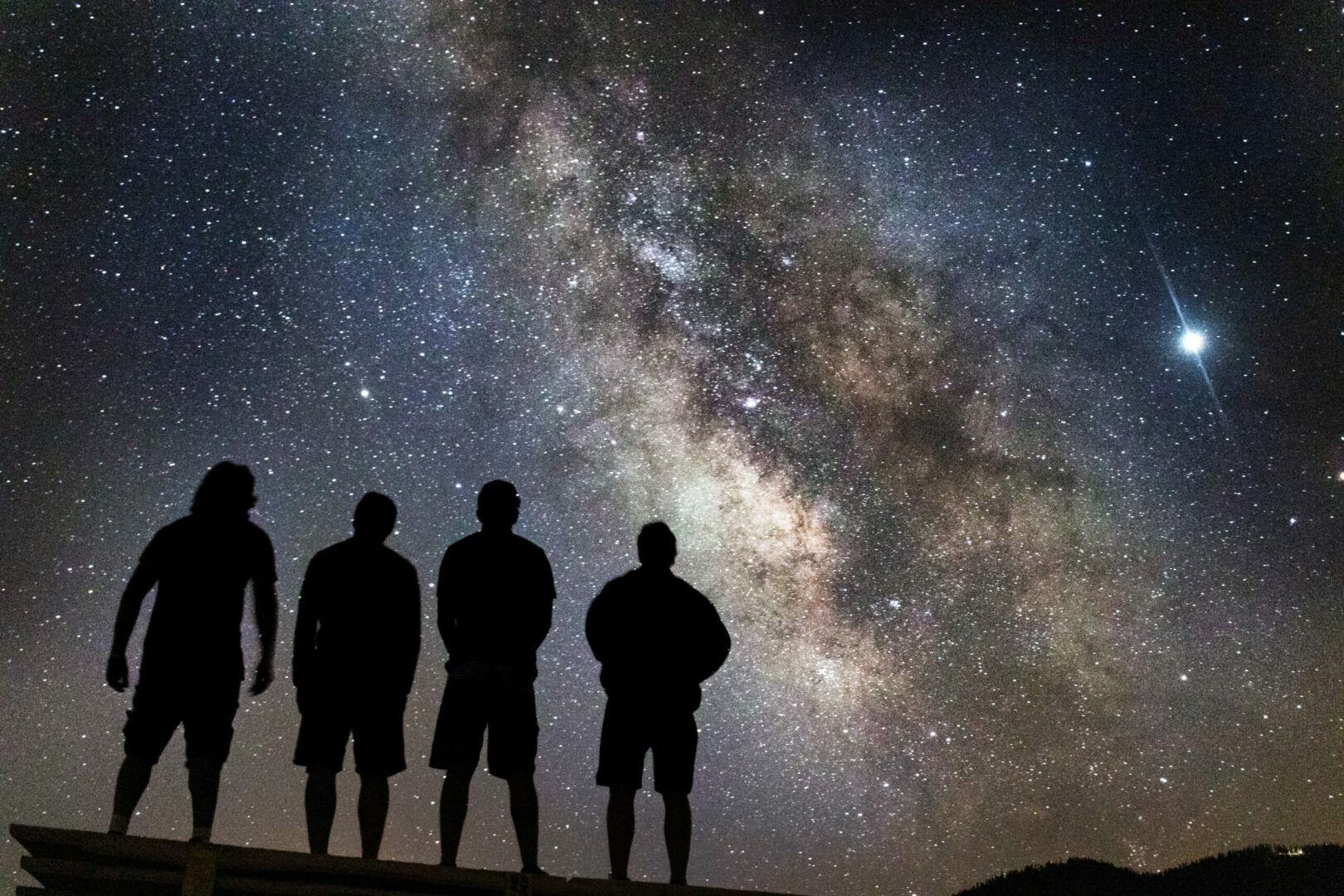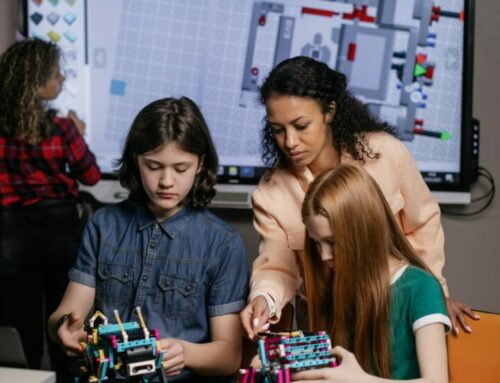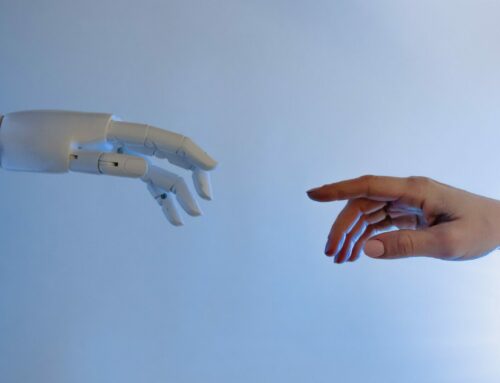Rethinking Humanity’s Relationship to the Planet
Patrick Blessinger, R. Kavena Shalyefu, and Gisele M. Arruda
Like all species on planet Earth, the story of humanity is the story of survival. However, unlike other species, the story of humanity is the story of overcoming the greatest of odds (perhaps a one hundred trillion to one outcome) to emerge as the dominant species on the planet. Since living organisms first evolved billions of years ago, it has taken a very long time for life to evolve from simple microorganisms to intelligent life (humans). Since humans are now the dominant species on Earth, they have also become the voice of the planet and, as such, have assumed an ethical responsibility to protect the planet.
Given the vastness of the universe (trillions of light-years across) and the estimated 200 quintillion habitable planets in the known universe, it is likely that lifeforms exist elsewhere. However, there is still uncertainty about how exactly life started on Earth. Even with the latest scientific knowledge and techniques, we are still not completely sure how the first living cells formed and we are still not able to create a self-replicating living cell completely from scratch using the same raw materials that Nature did billions of years ago.
This suggests how difficult it is for life to form naturally and how even more difficult it is for simple cells to evolve into highly complex intelligent life (humans) consisting of trillions of cells all working as a self-sustaining system. Thus, the evolution of a highly intelligent species that is capable of advanced technology (for example, sending radio waves into space) is not necessarily an inevitable result of biological evolution. After all, it took nearly four billion years for life on Earth to evolve into present-day humans.
Also, given the incredibly vast distances between habitable planets, it is perhaps unlikely that any of those potential lifeforms in the universe would one day be able to meet the others. Although we may never know if intelligent life exists in the universe, this should not discourage us from space exploration. In addition, if intelligent life does exist in the universe, it does not follow that it would evolve to resemble anything like humans.
The average adult human body consists of about 200 different types of cells and about 35 trillion cells in total (this does not include the roughly 35 trillion bacteria cells in the human body). Of these cells, about 85 billion are brain cells. The human brain is likely the most complex object in the universe. At the cellular level, each cell is its own self-regulating world capable of performing all of life’s functions – growth, reproduction, responding to stimuli, and maintaining homeostasis.
Thus, an organism is a highly complex set of thermodynamic metabolic processes. The trillions of chemical reactions that occur each second within the human body do so automatically – an astounding fact – as long as energy, in the form of food, is put into the system. Organisms are self-organizing information and energy processing systems.
The dominant species
The story of how humans became the most dominant species on the planet is perhaps the greatest story ever told. Modern humans (Homo sapiens sapiens) can trace their ancestry to Africa many years ago. A revolution in tool making (that is, more refined tools to improve hunting) allowed these early humans to fundamentally change their relationship with the environment.
With improved tools, these early humans were better able to dominate other species that they hunted for food. In doing so, these first humans, presumably, also had to learn more about how the ecosystems worked and how animals lived within those ecosystems in order to improve their chances for hunting, and therefore, survival.
When modern humans first started to migrate out of Africa (likely from the Great Rift Valley in Ethiopia), they took the first steps toward populating the whole world. DNA analysis, fossil records, and climate modeling indicate that present-day humans can trace their ancestry to those brave pioneers who migrated out of Africa in search of better living conditions.
As these early modern humans began to inhabit all parts of the world, they slowly adapted (structurally and behaviorally) to hugely different environments. These adaptations, via natural selection, genetic drift, gene flow, and genetic mutations, account for the wide diversity in human populations.
In addition to fossil records and other human artifacts, human history is, to a large degree, encoded in our genes. For example, recent genetic studies suggest that the structural change in eye color that occurred some 10,000 years ago was likely the result of a genetic mutation of the genes that influence the amount of melanin in humans. Our genes tell the story of our common history. We are one family – the human family – and we all share the same genes. Since the human race had its start in Africa, we are all Africans from a genetic, humanistic, and historical perspective.
A shifting environmental paradigm
Over the past few decades, we have seen a slow shift in humanity’s mindset toward the planet. For most of the time since the Industrial Revolution (circa 1800), little thought has been given to the negative impact of human activity on the planet. Until recent decades, humanity has, by and large, paid little attention to the environmental impact of mass urbanization, mass consumerism, and relatively unbridled exploitation of the planet’s natural resources. These human activities over the past two hundred years have resulted in enormous stress on the environment, including widespread species extinctions, destruction of ecosystems, and climate change, among others.
Ecosystems operate in a delicate balance. So, it is little surprise that activities such as mass deforestation, mass realtering of the natural landscapes, and mass urbanization, among others, have had a widespread negative impact on the ecosystems. While economic and technological development over the past 200 years has resulted in a dramatic improvement in the quality of life for most people on the planet, it has come at a high cost to the environment. Although the Industrial Revolution resulted in unprecedented innovations and quality of life improvements (for example, agriculture, medicine, and education), it also brought about mass pollution and widespread depletion of natural resources on a massive scale.
Over the past 50 years, with advances in climate science, we now have unequivocal evidence on how human activities over the past 200 years have impacted the planet. Climate science has resulted in a paradigm shift in how humans view our relationship with the planet and our ethical responsibility to the planet as the dominant species. As the dominant species, humans yield enormous power not only over the course of human events but also over the course of animal and environmental events.
This is why we must not only adopt the United Nations Sustainable Development Goals, but we must also develop animal rights and environmental rights to work together with human rights. Humanity’s relationship with animals and the environment is another paradigm shift that must occur soon.
Rethinking humanity’s relationship to the planet
The world we inhabit on planet Earth, and even the universe, consists of a complex system of interrelationships. The parts (from microorganisms to large-scale biomes) are in a delicate balance with each other. This macro system, which consists of many overlapping subsystems, has taken billions of years to develop. Not only is the universe fine-tuned for existence, but the planet has also become fine-tuned for life over the course of billions of years of evolution.
It is now time that we use that same human intelligence and ingenuity that has brought about, over the past 200 years, unprecedented improvements in human quality of life to also improve the quality of life for animals and the environment. This shift in mindset – one that is better suited to the realities of the Anthropocene epoch – is necessary if we are going to protect our planet and all its inhabitants. Because our planet is our only home, the story of humanity is a story worth protecting. This imperative can be expressed in the following verse:
Mother Earth speaks a language of her own –
she reveals herself in subtle and unexpected ways,
sublime moments when all the cosmic tumblers align.
To perceive is to see Nature’s artwork in her landscapes –
the tiny bolts of lightning flickering from fireflies in the night,
the dance of birds performing graceful pirouettes in the breeze.
To listen is to hear Nature’s voice in her surroundings –
the symphony of tunes from a chorus of lively songbirds,
the soft buzz of propeller wings from nimble hummingbirds.
But how will Mother Earth speak to us in one hundred years –
when future generations inherit the Earth, will they rejoice,
will they smile at the news of their inheritance of the planet?
Patrick Blessinger is an adjunct instructor at the State University of New York (Old Westbury) and President of the International HETL Association, USA. R. Kavena Shalyefu is an Associate Professor at the University of Namibia in the Department of Higher Education and Lifelong Learning. Gisele M. Arruda is a principal interdisciplinary researcher/professor (qualitative and quantitative) in Circumpolar Studies (Energy Systems, Arctic, Climate Change, Environment and Society).
Suggested Citation:
Blessinger, P., Shalyefu, R. K., and Arruda, G. (2022). Rethinking Humanity’s Relationship to the Planet. Higher Education Tomorrow, Volume 8, Article 6. https://www.patrickblessinger.com/rethinking-humanitys-relationship-to-the-planet/
Copyright © [2022] Patrick Blessinger, R. Kavena Shalyefu, and Gisele Arruda.
Disclaimer
Opinions expressed in this article are those of the authors, and as such do not necessarily represent the position(s) of other professionals or any institution.




